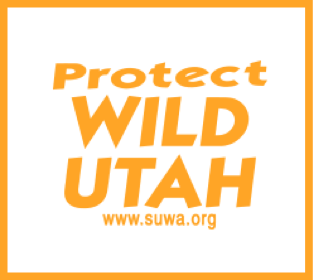|
FOR IMMEDIATE RELEASE: January 16, 2003 CONTACT: Liz Thomas, Southern Utah Wilderness Alliance, Moab, UT (435) 259-5440
Dr. Peter Morton, The Wilderness Society, Denver, CO (303) 650-5818
Federal Study of West’s Energy Resources Favors Gas Industry,
Slights Recreation, Wildlife Economies
EPCA Study Will Determine Western Energy Policy
The U.S. Bureau of Land Management and Department of the Interior’s Energy Policy and Conservation Act (EPCA) study will be used to evaluate existing administrative rules regarding energy development on western public lands. Conservation groups are concerned that the Interior Department will use the study to further rollback protections for wilderness, cultural resources, and wildlife.
“Short-term oil and gas development in Utah is simply not in the best interest of either wilderness protection or southern Utah economies,” said Liz Thomas, a staff attorney with the Southern Utah Wilderness Alliance. “Southern Utah business leaders are recognizing that short-sighted energy development is a threat to their livelihood. The risks posed by such activities to Utah’s wild and undeveloped places is too great for only a few days worth of oil and gas,” continued Thomas.
The BLM conducted the EPCA study on an accelerated schedule on the recommendation of Vice President Dick Cheney’s National Energy Policy Development Group. In October of 2001, Congress approved $3 million to complete the study, which included an analysis of “impediments to federal oil and gas leasing” on public lands in the West.
The so-called “impediments” cited in the study are primarily lease stipulations which protect sensitive wildlife habitat and other critical resources from the impacts of energy development.
According to Dr. Peter Morton, an economist with The Wilderness Society, the study also uses a meaningless gauge for determining how much gas is actually off-limits due to wildlife protection.
“By focusing on the ‘technically recoverable’ oil and gas reserves instead of the ‘economically recoverable’ reserves, the EPCA study vastly overestimates both the amount of gas that can be developed in the West and the amount of public land that is currently off-limits to production,” Morton says.
The mission of the Southern Utah Wilderness Alliance is the preservation of the outstanding wilderness at the heart of the Colorado Plateau, and the management of these lands in their natural state for the benefit of all Americans. SUWA formed in 1983 and has offices in Utah and Washington, D.C.
|
|
|

 Southern Utah Wilderness Alliance
Southern Utah Wilderness Alliance
Protecting Utah's Redrock Country
